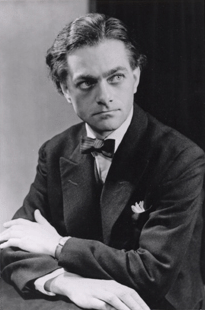Gordon Pask | |
|---|---|
 | |
| Born | 28 June 1928 |
| Died | 29 March 1996 (aged 67) London |
| Nationality | British |
| Alma mater | University of Cambridge University of London Open University |
| Known for | Conversation theory Chemical computing Cybernetic Serendipity Fun Palaces Interactions of actors theory |
| Awards | Wiener Gold Medal (1984) |
| Scientific career | |
| Fields | Applied epistemology Architecture Chemical computing Cybernetics Educational psychology Educational technology Human–computer interaction Systems art |
| Institutions | Brunel University University of Illinois at Chicago University of Illinois at Urbana-Champaign Concordia University Georgia Institute of Technology Architectural Association |
Andrew Gordon Speedie Pask (28 June 1928 – 29 March 1996) was a British cybernetician, inventor and polymath who made multiple contributions to cybernetics, educational psychology, educational technology, applied episteomology, chemical computing, architecture, and systems art. During his life, he gained three doctorate degrees. He was an avid writer, with more than two hundred and fifty publications which included a variety of journal articles, books, periodicals, patents, and technical reports (many of which can be found at the main Pask archive at the University of Vienna).[Footnote 1] He worked as an academic and researcher for a variety of educational settings, research institutes, and private stakeholders including but not limited to the University of Illinois, Concordia University, the Open University, Brunel University and the Architectural Association School of Architecture.[1][2] He is known for the development of conversation theory.
Cite error: There are <ref group=Footnote> tags on this page, but the references will not show without a {{reflist|group=Footnote}} template (see the help page).
- ^ (Scott 2007, pp. 32)
- ^ (Pickering 2009)